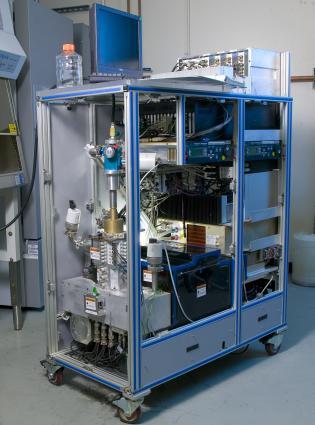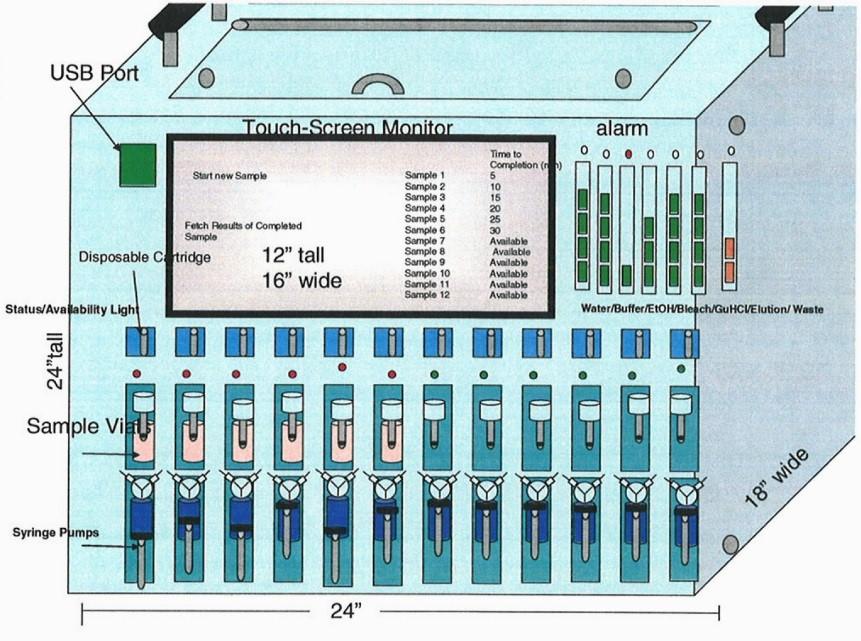Often, sick individuals may not know what is afflicting them until they see a health care provider, have diagnostic tests done, and are counseled on the results. Not only does this process involve the time taken to make an appointment and travel to see a doctor, but also the time needed to have the appropriate tests performed and the wait for the results to be returned. The time passed from initially scheduling a doctor's appointment to receiving final test results delays potential treatment. Thus, a publicly accessible and affordable method for rapid one-stop diagnostics to reduce time to treatment would have many benefits.
LLNL scientists have created a standalone pathogen identifier that can be placed in public settings, such as in stores or on street corners. Not unlike an ATM in physical size, this kiosk will accept biological samples from an individual for multiplexed analysis. The sample collection process will be sufficiently simple such that anyone could begin the diagnostic process after making the appropriate payment via cash, credit, or debit cards. After the customer signs the appropriate disclaimers concerning diagnosis and liability, a sterile swab or collection tool or vial, viral transport media, instructions on collecting a sample, gloves, and antiseptic wipes would be dispensed to them. The customer then would select what pathogens they want to be screened for before the assay begins. The multiplexed assay itself is comprised of multiple prior IP developed at LLNL and can detect the presence of bacterial or viral pathogens including, but not limited to, influenza, streptococcus, and salmonella.
The instrument will have the capability to run multiple samples simultaneously. Once the assays are complete, the customer will be emailed or contacted via phone within three hours to be given their results as well as a notice that all results are not official until confirmed by a medical diagnostic laboratory. The results will include a description of the identified pathogen, the typical symptoms associated with it, and the expected course of the disease. Finally, epidemiological data collected over the previous several months by regional machines regarding the percentage of other individuals infected by the same pathogen will be provided to the customer.
- Rapid, inexpensive, and easily accessible pathogen identification for the public
- Multiplexed assays provide opportunity for an array of potential samples to be tested for multiple diagnoses simultaneously
- Pathogen identifier results may prompt the infected individual to seek proper medical attention they otherwise may not have received
- Placement in a public setting to allow infected individuals to correctly identify what pathogen is afflicting them
- Tracking and reporting anonymous epidemiological data and trends to the government (NIH, CDC, FDA, etc.) for action and/or research
LLNL holds a patent 8,647,573 "Automated diagnostic kiosk for diagnosing diseases" for this technology (LLNL internal case # IL-11738).



